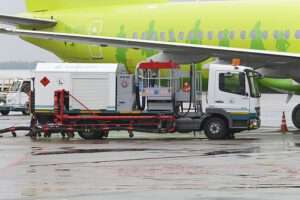Policy shortcomings puts SAF production at risk, said IATA chief

“While it is encouraging that SAF production is expected to double to 2 million tonnes in 2025 that is just 0.7% of aviation’s total fuel needs.
“And even that relatively small amount will add $4.4 billion (€3.8 billion) globally to the fuel bill. The pace of progress in ramping up production and gaining efficiencies to reduce costs must accelerate,” said Willie Walsh, IATA’s Director General.
Most SAF is now heading toward Europe, where the EU and UK mandates kicked in on 1 January 2025.
Unacceptably, the cost of SAF to airlines has now doubled in Europe because of compliance fees that SAF producers or suppliers are charging.
For the expected one million tonnes of SAF that will be purchased to meet the European mandates in 2025, the expected cost at current market prices is $1.2 billion (€1.04 billion).
Compliance fees are estimated to add an additional $1.7 billion (€1.47 billion) on top of market prices — an amount that could have abated an additional 3.5 million tonnes of carbon emissions.
Instead of promoting the use of SAF, Europe’s SAF mandates have made SAF five times more costly than conventional jet fuel.
“This highlights the problem with the implementation of mandates before there are sufficient market conditions and before safeguards are in place against unreasonable market practices that raise the cost of decarbonisation. Raising the cost of the energy transition that is already estimated to be a staggering $4.7 trillion (€4.07 trillion) should not be the aim or the result of decarbonisation policies. Europe needs to realise that its approach is not working and find another way,” said Walsh.












